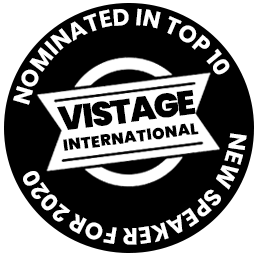With such a variety of leadership styles, how do you know which one will be the best choice for you and your company?
In my book, “Blind Spots: How to Embrace Curiosity, Disruption, and Imagination to See Yourself as a Change Agent”, I talk about two distinctive approaches that define our leadership styles.
- Assessing the situation. This approach is based on firsthand knowledge about that individual case. Learning new info, getting educated on the subject, and understanding possible limitations.
- Judging the situation. It is innate in us to judge a situation based on our past experiences, preconceived ideas and prejudices. That is what judging means. You are looking backwards to your past experience and acquired filters, to formulate the decision on a person or situation.
Leadership Styles and How Pope Francis Said It
Forbes magazine ran an article in October 2017 called “How to apply the Pope’s leadership principles to the boardroom.” While this is a great article with a lot of valuable material, my favorite part is where he extolled us to “assess, don’t judge.”
As I knew no blind people when I lost my eyesight, my judgment on blindness was framed in ignorance.
When I received my initial diagnosis of NAION (Non-Arteritic Anterior Optic Neuropathy), my initial reaction was one of panic, anger, denial, and yes, self-pity.
In retrospect, they are all natural and it is important to go through the grieving process, but I could have come out of it a lot sooner if I had taken the time to be curious about what blindness is.
My initial terror at existing in the world of darkness was not grounded in fact, but on assumptions.
In the words of Pope Francis, ”Who am I to judge?” By that, I believe he means judging people, situations—and ourselves!
Leadership Styles – Climbing the Ladder of Success
Here are some helpful thoughts to guide you on your journey to recognizing the right leadership style for you.
Have an Open Mind
I had met only one other blind person in my fifty-seven years of living, and he was such an overachiever that he had climbed the Seven Summits while being totally blind.
Erik Weihenmayer did not fit my image of blindness, and I totally discounted my chances of being like him, a man recognized as a climber who happens to be blind, and not the other way around.
Too many times we identify ourselves with our weaknesses, rather than our strengths.
It is sad how ignorance about something will make us jump to conclusions that come from judging the situation, rather than assessing.
My ignorance of blindness “made” me feel a lot worse about my future than I need be. What are YOU ignorant about? What is it you are judging? Is it your child, en employee, a new law? Invest the time to satisfy a curious mind, and then you have the ability to assess it, but only…IF YOU ALSO HAVE AN OPEN MIND!
Accept There Will Be A Learning Curve
Imagine waking up every morning, and “forgetting” that you are blind. You open your eyes to turn off the alarm clock, only to realize that you can’t see it.
For a moment you hope that it is all a bad dream, but then, reality sinks in. You remember the last few days, the doctors, the injections in the eyeballs, the dilations, the tests, the diagnosis.
You remember giving up the keys to your car, the realization you no longer can read a Profit and Loss statement that you can’t see your children or wife, and the “darkness” comes down with such force that it crushes your will to get out of bed.
The reality of my situation was aggravated by my judgment of my potential.
However, when I assessed the situation, based on:
- firsthand knowledge of contact with blind people
- getting educated on the subject
- understanding the limitations of my loss of eyesight
I concluded that there was a lot, as a matter of fact, nearly everything, that I could do.
Through Eyecycle and Guide Dogs for the Blind, I met people who worked for large corporations, the IRS, who owned their businesses and so much more.
And yes, I met people living off disability checks under the cloud of defeat. But mostly, I was exposed to people that led “normal” lives, and saw blindness only as something to overcome, not as a barrier.
Learn to Adapt
I am not saying that you won’t have moments of despair, self doubt, anger, and frustration.
I know I did! They were plentiful and made the transition that much more difficult.
But I was able to focus on what I needed to change to adapt, and slowly but surely became more and more curious about overcoming the obstacle, rather than dwelling on what I could NOT do.
In other words, I began the process of assessing my potential, rather than judging my shortcomings.
While there are plenty of different leadership styles you can develop, your daily actions should come from a place of understanding.


